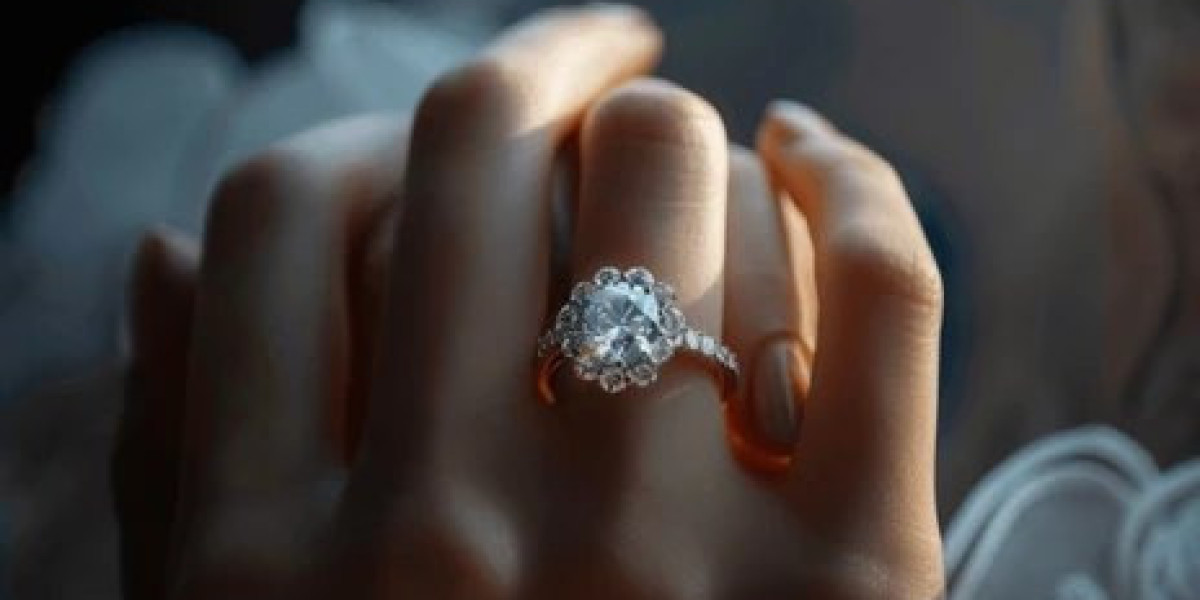The global conversation about sustainability and ethical practices is making waves across many industries, including the world of jewelry. For modern brides and consumers, the demand for ethically sourced products has never been greater, and this is especially true when it comes to diamonds. A growing number of people are turning to women’s lab-grown diamond wedding bands as a conscious choice that balances luxury with ethical responsibility. As we look toward the future of wedding jewelry, it’s clear that lab-grown diamonds are not only a viable alternative but also a preferred one for many.
What Are Lab-Grown Diamonds?
Lab-grown diamonds are real diamonds, chemically, physically, and optically identical to their natural counterparts. They are created in controlled environments that mimic the conditions under which natural diamonds form deep beneath the earth. Using advanced techniques like High Pressure High Temperature (HPHT) or Chemical Vapor Deposition (CVD), these diamonds are cultivated in labs, offering a solution to the ethical and environmental challenges posed by traditional diamond mining.
Unlike diamond simulants, such as cubic zirconia, lab-grown diamonds are genuine diamonds, made of carbon atoms arranged in a crystal structure. The only difference lies in their origin—while natural diamonds are formed over millions of years in the earth, lab-grown diamonds can be produced in a matter of weeks.
Why Lab-Grown Diamonds Are the Ethical Choice
1. Conflict-Free and Ethically Sourced
One of the most significant benefits of choosing a women’s lab-grown diamond wedding band is the guarantee of a conflict-free diamond. Mined diamonds have long been associated with the so-called "blood diamond" trade, where diamonds are mined in war-torn areas under inhumane working conditions and often fund violence and conflict. Although the Kimberley Process, an international certification system, was established to prevent the trade of conflict diamonds, the system has been criticized for its inefficiencies and lack of enforcement.
Lab-grown diamonds eliminate the risk of supporting this problematic industry altogether. They are created in controlled environments, far from the violence and exploitation that can be tied to traditional diamond mining. By choosing lab-grown diamonds, consumers can be confident that their purchase supports ethical practices and fair labor standards.
2. Reduced Environmental Impact
Traditional diamond mining can have a significant environmental impact. The process involves the removal of vast amounts of earth and rock, often leading to deforestation, soil erosion, and habitat destruction. The extraction of diamonds from deep within the earth can also result in toxic chemicals leaching into the environment, harming surrounding ecosystems.
In contrast, lab-grown diamonds are produced with a fraction of the environmental footprint. They require fewer natural resources and energy to create, and because they are made in laboratories, there is no need to disturb delicate ecosystems or biodiversity. Choosing a women’s lab-grown diamond wedding band is, therefore, a sustainable choice for those who want to reduce their environmental impact.
3. Transparency and Traceability
Another advantage of lab-grown diamonds is the high level of transparency and traceability. Unlike mined diamonds, where the full history and origin of the stone can sometimes be unclear, lab-grown diamonds come with detailed information about their creation process. Reputable jewelers provide certificates from trusted gemological laboratories, offering information about the diamond's quality, size, and the conditions under which it was produced.
This traceability is crucial for ethical buyers who wish to support companies and practices that align with their values. Lab-grown diamonds are free from the risks of fraud and unethical practices, giving consumers peace of mind when making such an important purchase.
The Future of Ethical Jewelry
The rise of lab-grown diamonds is transforming the jewelry industry in many ways. As consumers become more conscious of the environmental and ethical implications of their purchases, the demand for sustainable options has increased. Lab-grown diamonds offer a tangible solution to these concerns, and their popularity continues to grow.
1. Greater Accessibility
Lab-grown diamonds are generally more affordable than mined diamonds. This affordability allows consumers to access high-quality, ethical diamonds at a lower price point. For brides looking for a women’s lab-grown diamond wedding band, this means the opportunity to choose larger stones, higher-quality cuts, or intricate designs that might otherwise be out of reach with mined diamonds.
2. A Shift Toward Sustainable Practices
As lab-grown diamonds become more mainstream, they are encouraging other industries within the jewelry world to reconsider their practices. Many jewelry brands are beginning to adopt sustainable and ethical sourcing practices in response to consumer demand. By choosing a women’s lab-grown diamond wedding band, you're contributing to this larger cultural shift toward responsible and conscious consumption.
3. Innovation in Design
With lab-grown diamonds offering a broader range of options for size, color, and clarity, jewelers are able to experiment with more creative and innovative designs. Brides who choose a women’s lab-grown diamond wedding band will find a diverse array of styles, from vintage-inspired bands to modern, minimalist settings, making it easier to find the perfect piece to reflect their unique personality and style.
How Lab-Grown Diamonds Are Reshaping the Jewelry Industry
1. Increased Consumer Education
The rise of lab-grown diamonds has led to a significant increase in consumer awareness and education. Jewelry buyers are now more informed about the environmental and ethical issues surrounding traditional diamond mining. This has empowered them to make choices that reflect their personal values, encouraging transparency across the industry.
2. Competitive Pricing and Greater Choice
Lab-grown diamonds offer high-quality stones at a more competitive price, which allows consumers to invest in larger or more detailed pieces. This is particularly important for buyers seeking to make the most of their budget while still investing in something valuable and long-lasting.
Conclusion: A Future Focused on Ethics, Sustainability, and Luxury
As we look to the future of bridal jewelry, women’s lab-grown diamond wedding band are leading the charge in terms of ethical sourcing, environmental sustainability, and affordability. These diamonds offer the beauty, durability, and luxury of traditional mined diamonds without the environmental toll or ethical concerns. Brides who choose lab-grown diamonds are not just making a smart, cost-effective decision—they are also making a statement about their values and commitment to a better, more sustainable world.
By choosing a lab-grown diamond wedding band, you're ensuring that your commitment to your partner is not only symbolized by a stunning piece of jewelry but also by the responsible and ethical choices you’ve made along the way.








